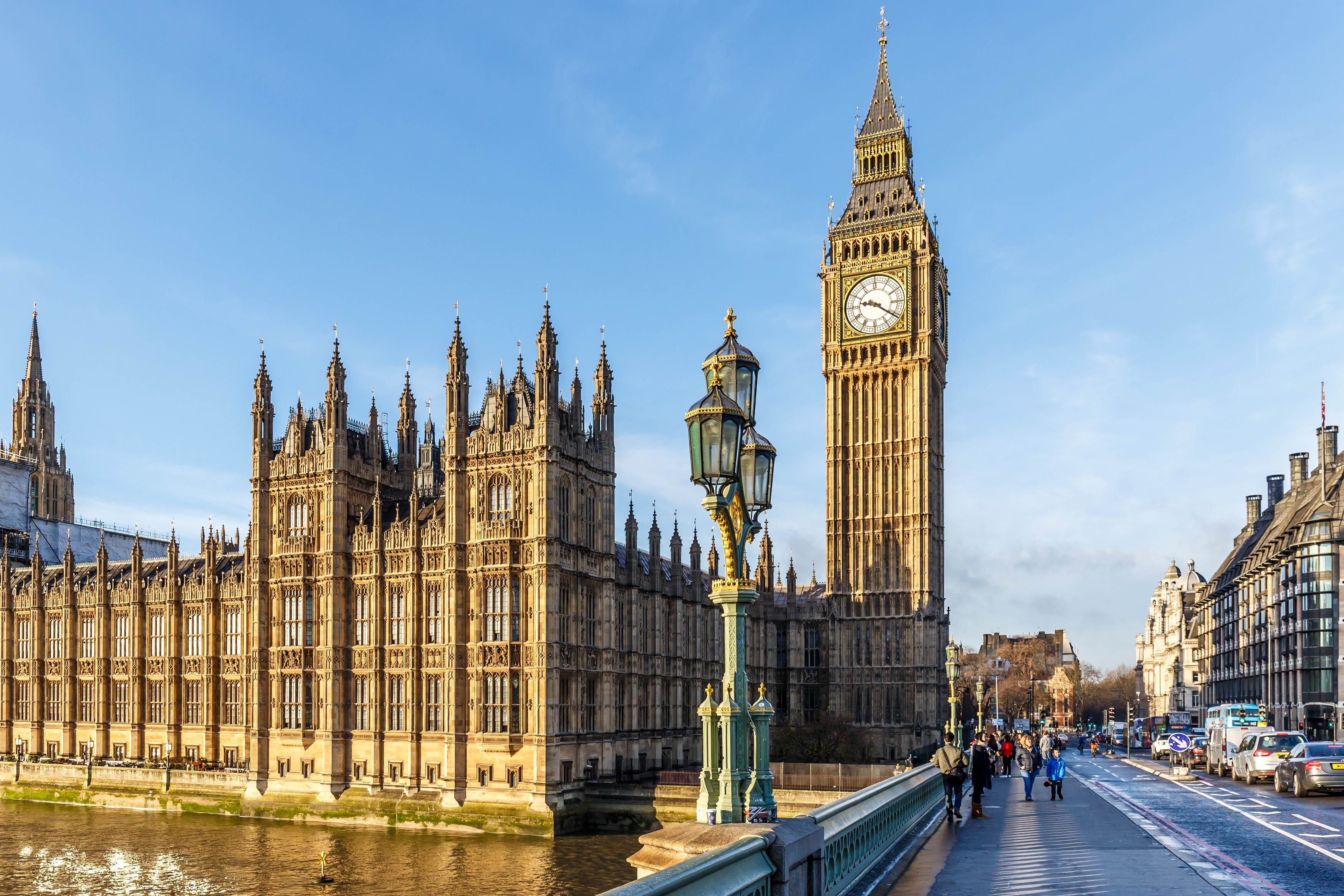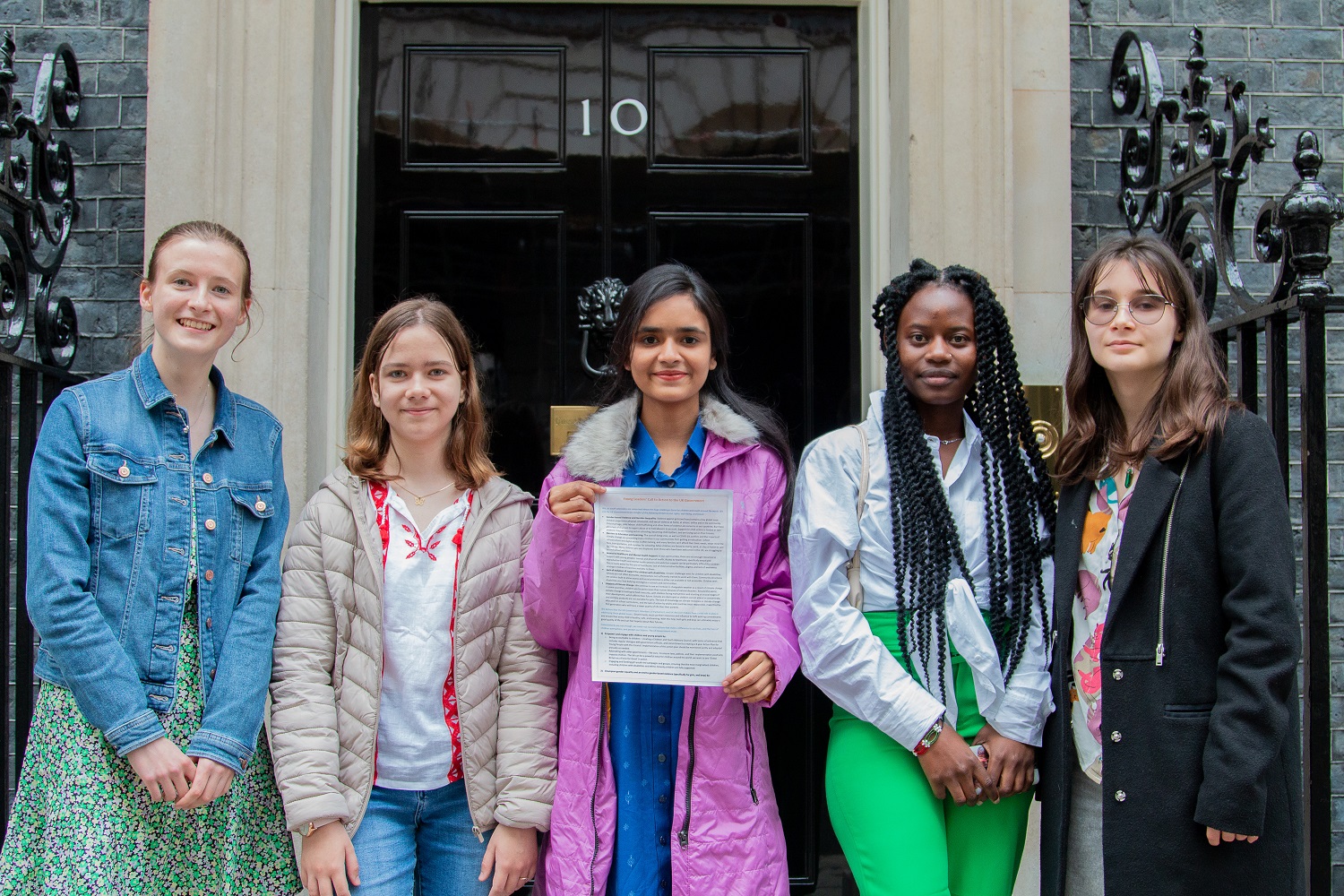
Everything to know about writing to your MP
An easy way to raise awareness for causes you care about
For those who are passionate about raising awareness for a cause that is close to their heart, whether protecting girls from child marriage, stopping children from being recruited as soldiers or something else, writing to your MP can be a brilliant way to advocate for positive change. World Vision UK often runs campaigns where we ask our supporters to write to their MP about a pressing issue so keep your eyes peeled for opportunities to join in with World Vision UK by writing to your MP!
In this article, we offer answers to the most frequently asked questions about writing to an MP. Read on to find out more.
Why write to your MP?
Writing to your MP can be a great way to raise attention to a cause that’s close to your heart and advocate for action from the UK Government, whether something very personal to you and your area or issues that are happening elsewhere in the world, such as the crisis in Ukraine.
It can often feel as though we are powerless to make a big change but writing to your MP is one of the best ways to get your voice heard. By writing to your MP, your message gets a larger platform and your MP can help you with your mission. MPs represent their constituents in Parliament by bringing the Government’s attention to issues which matter most to them – MPs can ask the Government questions, call for meetings, and even suggest policy changes. Ultimately, MPs vote on the law, and if they know which way their constituents want them to vote, they might choose to vote that way.
What happens when I write to my MP?
When you write to your MP, they might choose to respond in a manner of ways. How they choose to respond will depend on the topic you’ve discussed with them, what you’ve asked them to do, and the best course of action for the issue.
The three main things that will happen after you write to your MP, depending on what you’ve asked them to do, are:
They write to the relevant department or official – This is a private step and involves your MP writing a private letter to the relevant government minister on your behalf. They may even arrange a meeting with the right people in order to discuss the issue further and pass your message along.
They discuss the issue in the House of Commons – In order to discuss the issue publicly, your MP might choose to raise it in the House of Commons during department questions. This will mean it’s officially recorded and will make it more likely to be picked up by the press or in public forums.
They support the causes privately – This is another potential option and would depend on what you’ve written to your MP about. For example, if you are fundraising locally and are asking for their support, the best course of action might be for them to offer you tips on how to fundraise, they might come along to an event you’re running or post about it on social media.
There is also a chance you might not receive a response from your MP. This can be for a range of reasons and doesn’t mean that they have not pursued your letter or have raised your issue. If this happens, the best course of action is to follow up to ask what steps they have taken to help you with your concern. If this doesn’t work, WriteToThem offer their suggestions for next steps.

How do I find my local MP?
If you are unsure who to contact, the Parliament’s website has a great tool to help you find your MP. You simply put in your postcode or location, and it shows you the name of your MP, their party and their constituency. As well as giving you their contact details when you click on their profile, you’ll get their voting records, spoken contributions, interests and much more.
In terms of contact information, as well as the best address to contact them at (including both their Parliament and constituency office address), you’ll get their office phone number, email, a link to their website (if they have one) and their social media profiles (if they have them).
How to write a letter to your MP
Once you’ve got the contact information you need, you are ready to start the process of contacting your MP. It may seem daunting, but your letter or email should simply address your concerns and the solutions or help you are looking for.
Tips for writing a letter to you MP
- Include your contact details – don’t forget to include your contact details so that your MP knows where to respond to you and tell you how they’ve followed up. You also need to make sure you include your postcode so that they know you’re from their constituency.
- Be clear and concise – it may seem beneficial to offer a range of information but being clear and concise is often best. Try to keep to the main point and only offer the necessary information.
- Tell them what you want them to do – depending on your issue, there might be a clear outcome you require of them, whether it’s attending a local fundraising event or voicing your concern in the House of Commons. State the outcome you hope for in your letter. If you aren’t sure, why not request a meeting to talk in person about how they can support you?
- Use your own words – there are many templates around that can be a great way of starting off your letter to your MP, however, be sure to talk from the heart and use your own words. This is what will appeal to your MP and make them more passionate about wanting to help your cause.
What other ways can I contact my local MP?
Writing to your MP by letter or email isn’t the only way you can contact them. You may find that addressing them publicly on social media works more in your interest, especially if you are speaking about a topic that’s currently popular or divisive in your local area. This way, other people can see that you have contacted them, will be able to see their response (if shared publicly) and will also be able to be a part of the dialogue. For those actioning for change in their local area, this can be a useful way to be heard.
You could also look to talk to them face-to-face. Many MPs make a point of being available to their local constituents and you might be able to go to their office if they have an open-door policy, talk to them at a local surgery (public meeting) or arrange a private consultation.
Writing to your MP is a noble thing to do and a great way to start making change. At World Vision, we often ask our supporters to write to their MP about issues we care about. Our focus is on protecting children in the world’s most vulnerable or fragile areas and helping them to become the best version of themselves. If you want to support the work we do, you can sponsor a child or donate below. And don’t forget to keep your eyes open for opportunities to write to your MP on behalf of World Vision.



